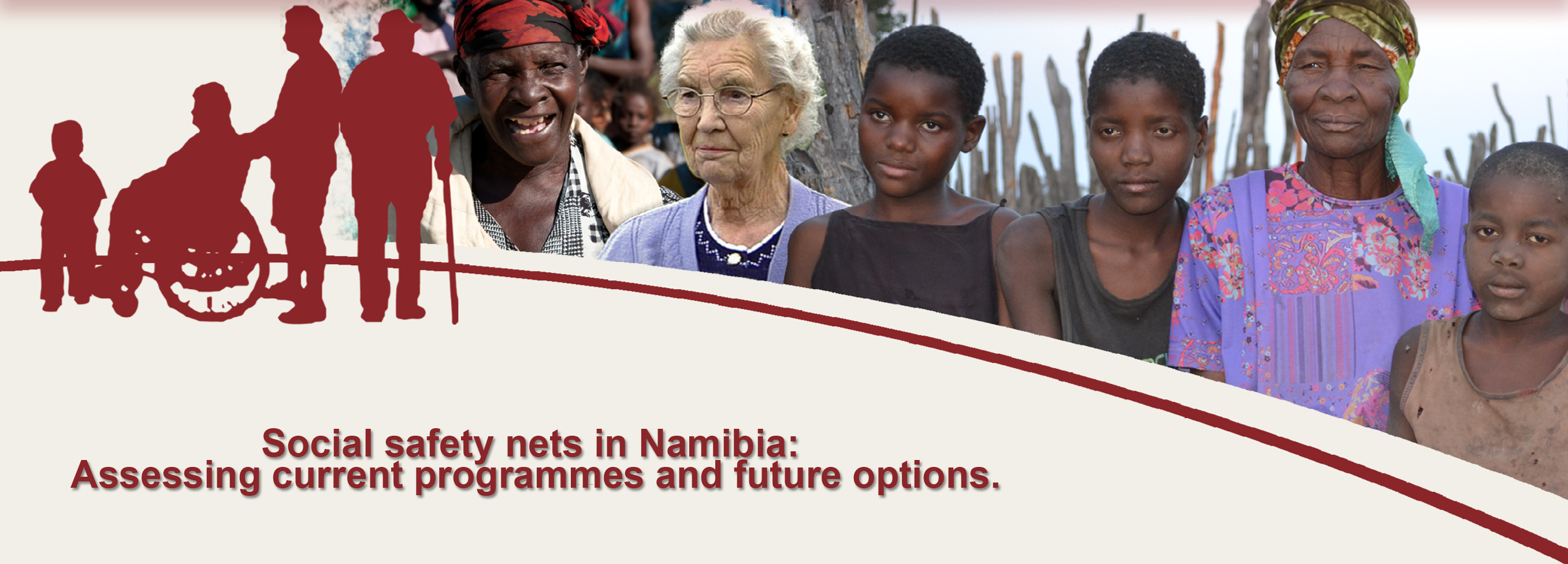by Karl Widerquist | Sep 17, 2013 | News
Namibia is experiencing its worst drought in decades. Hundreds of thousands of people are affected. Several groups have decided to use the Basic Income Guarantee (BIG) as a model for distributing relief aid. The Lutheran World Federation (LWF) initiated the effort, which will give a short-term monthly grant of N$100 to 4 000 drought affected people. The cash will be disbursed from mid-September 2013 until March 2014 when the next (hopefully improved) crop is harvested. The LWF selected four communities, one in each of the hardest hit regions of Hardap, Kunene, Omusati and Kavango.

A woman pictured in Caprivi while carrying two 25-kg bags of drought relief maize. -New Era
The idea of using BIG as a method of distribution for disaster relief aid has been discussed for years, but this is the apparently first time it has been implement anywhere in the world. The decision to use this method follows the successful BIG pilot project conducted recently in Otjivero, Namibia.
BIG has several potential advantages of as a form of emergency relief. It allows individuals to tailor their relief to their needs. Food aid is good for people who need food, but not as good for people who need medicine, seeds for next year, or money to relocate. Direct food aid crowds out market provision of food, but BIG attracts more companies to bring food into the area. Donations can be more quickly turned into BIG than they can be turned into almost any other form of aid. Experts will be watching this project closely to determine whether BIG lives up to this potential.

Livestock in Namibian drought. -LWF
The cash response of the Churches received media attention yesterday. The Bishops of the Lutheran Churches, the LWF Africa Secretary and TARA informed the media about the joint drought relief programme. The three major newspapers of Namibia reported in detail about it, two on the front page.
People can donate to the project online via the following link by entering the keyword “Appeal NAM 131”: https://www.lutheranworld.org/content/emergency-drought-angola-and-namibia
For more information about the project see these three articles:
ENGLISH: Fifi Rhodes, “Cash for drought victims,” New Era, September 3, 2013
ENGLISH: Clemans Miyanicwe, “Lutherans give N$100 to the poor,” the Namibian, September 3, 2013
GERMAN: Catherine Sasman, “Lutherse gemeenskap staan saam teen droogte,” Voorgele deur Republikein, September 3, 2013
by Yannick Vanderborght | Aug 14, 2013 | News
Namibia is experiencing its worst drought in decades and the President has declared a state of emergency. By now nearly 800,000 people are affected and in urgent need of support. At the initiation of Bishop Kameeta, of the Lutheran Churches in Namibia, has organized several groups to focus their main response on paying a cash grant to four communities across the country for a period of six months.
Groups involved include LFW (Lutheran World Federation), LUCSA (Lutheran Communion in Southern Africa), TARA (Theological Institute for Advocacy & Research in Africa), and the Act-Alliance. LUCSA-TARA will implement the cash response to the drought. TARA and the LWF emergency co-ordinator for Southern Africa recently travelled through Namibia to assess the situation on the ground and to plan the cash response.
If you would like to donate to the effort, go to the following link (also providing impressions of the extreme situation many households in Namibia are facing): https://www.lutheranworld.org/content/emergency-drought-angola-and-namibia
More images of the current situations are online: https://www.cdhaarmann.com/Pictures/Drought%20Relief%20Namibia%20July%202013/index.html

. In one of the inteA recently abandoned cattle postrviews we learned that due to a lack of grazing the herders had moved on. However, there is little hope to find grazing anywhere within reach. Location: 50km north of Sesfontein in the Kunene region. Photo: Dirk Haarmann
by Karl Widerquist | Aug 13, 2013 | News
Karl Widerquist will discuss the basic income guarantee as a way to provide a more effective social safety net in Namibia at a conference in Windhoek on September 26, 2013. He will discuss the experience in Alaska with its dividend program as well as pilot projects in Namibia, Indian, Uganda, and other places. The conference is hosted by the Namibian central bank.
Karl Widerquist is an Associate Professor at SFS-Qatar, Georgetown University. He holds two doctorates—one in Political Theory from Oxford University (2006) and one in Economics from the City University of New York (1996). He has published six books, the most recent of which is Independence, Propertylessness, and Basic Income: A theory of freedom as the power to say no.
Karl Widerquist, “Social safety nets in Namibia: Assessing current programmes and future options,” Featured Speaker, Windhoek, Namibia, Bank of Namibia, Windhoek, Namibia, September 26, 2013. For more information, see the following two websites:
https://www.bon.com.na/Annual-Symposium.aspx
https://www.bon.com.na/Annual-Symposium/Annual-Symposium-Speakers.aspx

Annual Symposium: Social safety nets in Namibia
by Yannick Vanderborght | Jul 16, 2013 | News
This PowerPoint slideshow by Uhuru Dempers summarizes some of the results of the Basic Income Pilot Project in Otjivero, Namibia.
It’s online at: https://www.slideshare.net/SIANIAgri/basic-income-grant-pilot-project-in-namibiasentationatstockholmseminar11thsept2012
by Yannick Vanderborght | May 26, 2013 | News
Rigmar Osterkamp, a long-time critic of the Namibian Basic Income Pilot project has recently published a new piece on DandC.edu. In the piece he calls the project a “failure.”
Rigmar Osterkamp, “Poverty reduction Lessons from failure” D+C (DandC.eu), May 5, 2013: https://www.dandc.eu/en/article/disappointing-basic-income-grant-project-namibia




